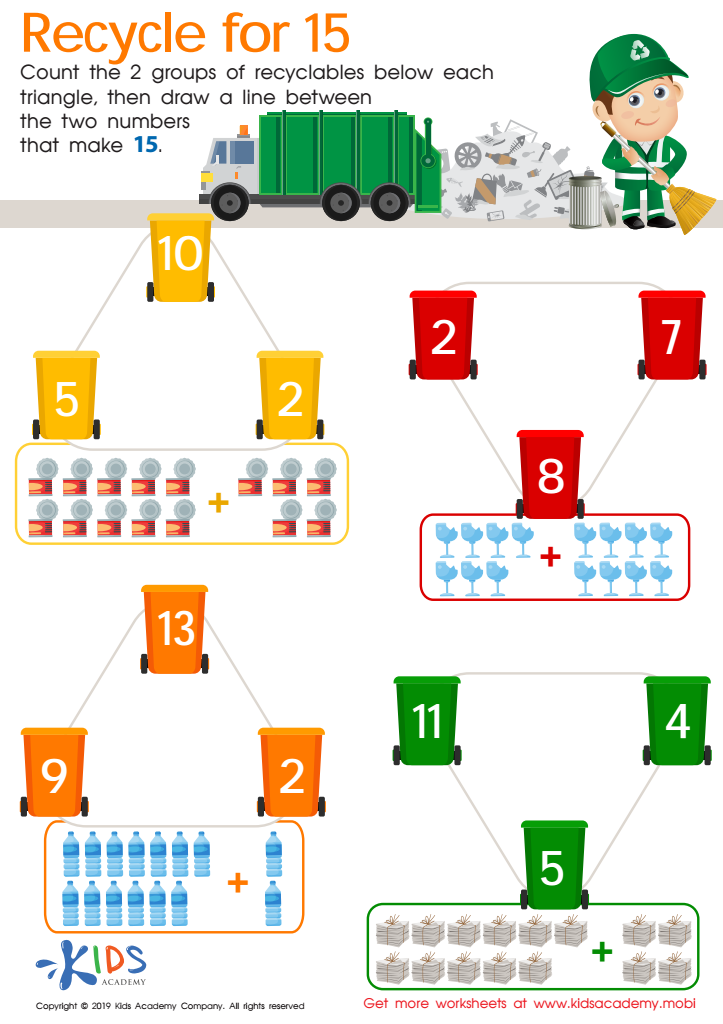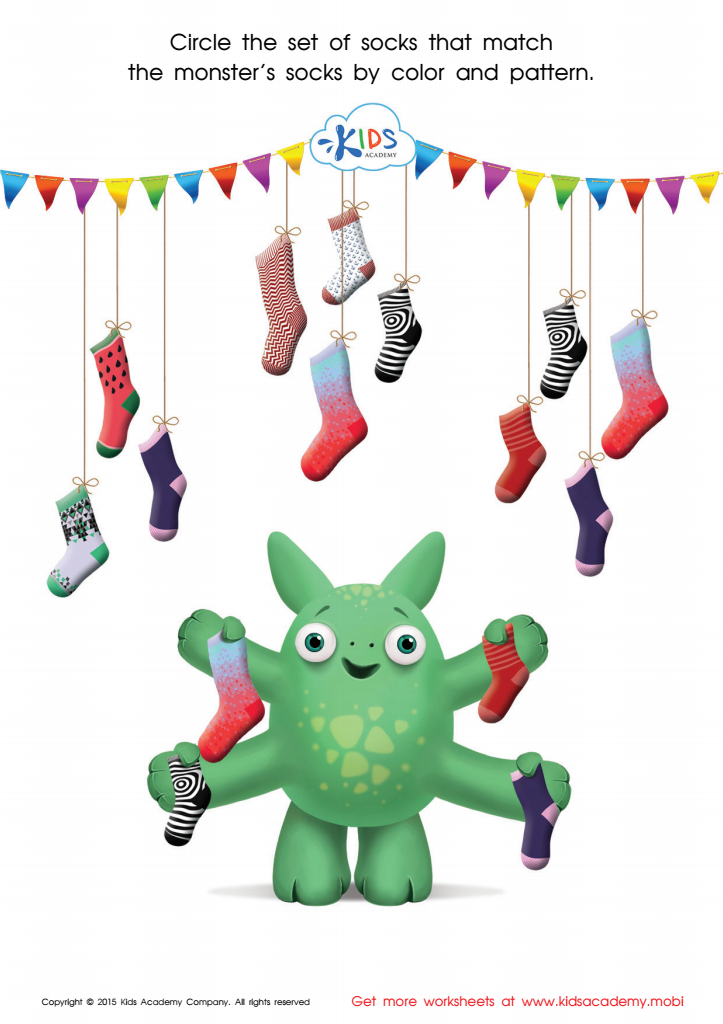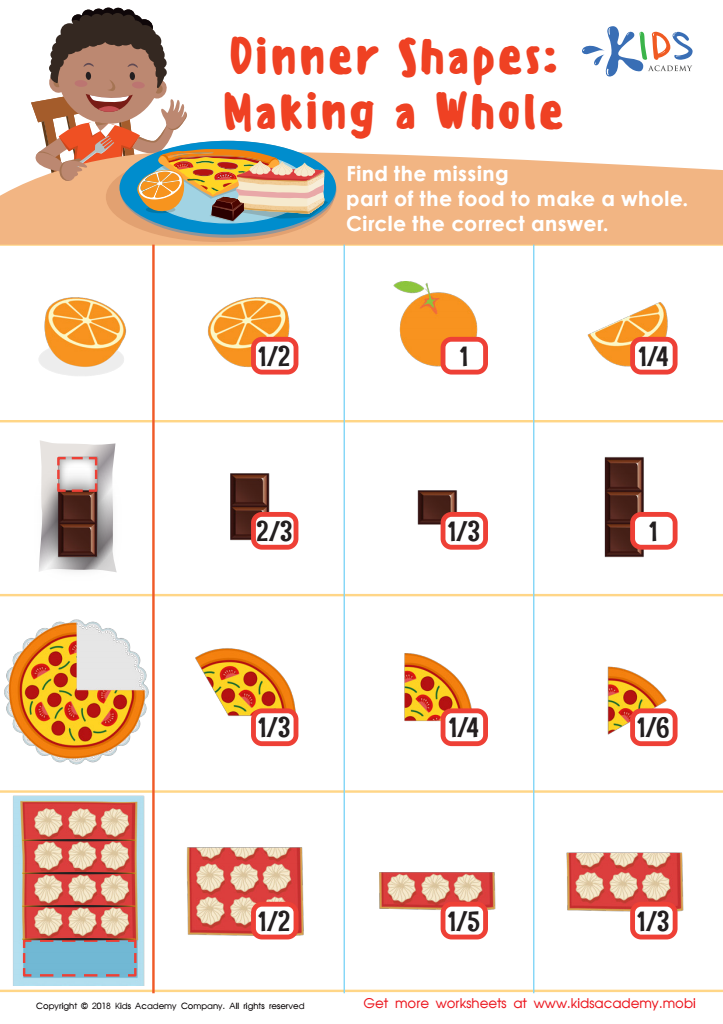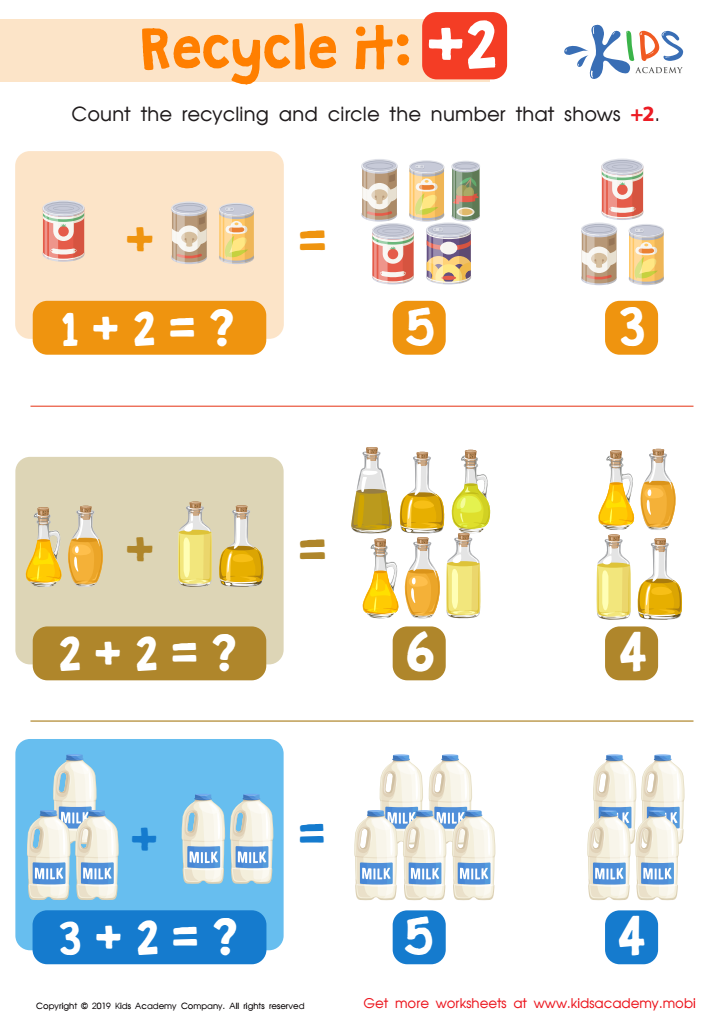Sorting skills Addition & Subtraction Worksheets for Ages 5-8
6 filtered results
-
From - To
Enhance your child's math abilities with our engaging Sorting Skills Addition and Subtraction Worksheets, designed specifically for ages 5-8. These interactive worksheets blend fundamental math concepts with sorting exercises, helping young learners develop their critical thinking skills while mastering addition and subtraction. Bright visuals and relatable scenarios make learning fun, encouraging kids to group and categorize numbers as they work through various math problems. Ideal for at-home practice or classroom use, our well-structured resources foster a solid foundation in arithmetic. Support your child's journey toward math fluency with our comprehensive, easy-to-follow worksheets that make learning enjoyable and effective!


Recycle for 15 Worksheet


Sort the Monster's Socks Worksheet


Dinner Shapes: Making a Whole Worksheet


Recycle It: +2 Worksheet
Sorting skills are foundational for young children, particularly in relation to addition and subtraction for ages 5-8. Developing these skills cultivates critical thinking and problem-solving abilities. When children sort objects—whether by size, color, or shape—they practice categorization and organization, which enhances their understanding of numbers and mathematical principles.
Addition and subtraction rely heavily on these sorting and categorization skills. When children learn to group numbers or objects, they are essentially sorting—a key precursor to comprehending basic arithmetic. For instance, grouping smaller numbers together helps kids visualize how numbers combine or decrease, reinforcing concepts like "more" and "less."
Additionally, these skills promote cognitive development, encouraging children to recognize patterns and relationships, fundamental aspects of mathematics. Furthermore, making learning engaging through games that involve sorting can increase motivation and retention.
For parents and teachers, supporting children in developing sorting skills not only enriches their mathematical understanding but also enhances overall cognitive and social development. By fostering these skills early on, caregivers can set children up for success in mathematics and beyond, making sorting a crucial element in early education.
 Assign to My Students
Assign to My Students


















